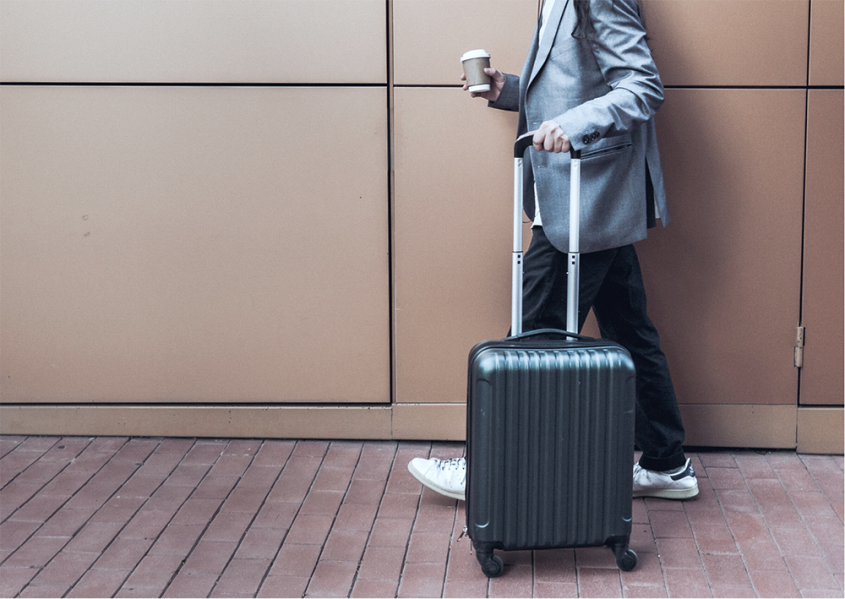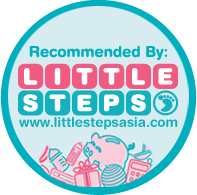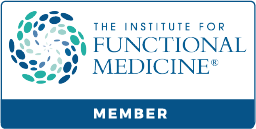
How to Survive the Round of Business Trips
Business trips can be physically and emotionally exhausting, specially if you're doing them on a regular basis. In this blog post we'll share expert tips from our practitioners to re-fill your energy reserves fast and help your body and brain recover!
1. Begin adjusting your sleep incrementally before you travel.
If you know your destination is five hours behind your time zone, try sleeping later than your usual bedtime two nights before your trip.
For instance, if you leave on Monday, try to sleep 90 minutes later on Saturday and another 90 minutes later on Sunday.
2. Try to wear loose & comfortable clothes
Avoid wearing constricting clothing, such as tight pants or belts, as this can impede blood circulation and lead to discomfort when sitting for extended periods.
3. Drink calming herbal tea.
This is one of the oldest tricks in the book. If you can’t fall asleep at night, try drinking chamomile or lavender tea. Chamomile tea has been used for treating insomnia for many years, as it is known to have tranquillizing and sleep-inducing qualities. Research has shown lavender to be effective in speeding up the onset of sleep and relieving restlessness.
4. Avoid sleeping upon arrival.
This tip applies to business travelers who arrive at their destination in the morning or afternoon. Stay refreshed by taking a quick shower — but avoid napping, as you might end up sleeping for hours instead. But if you have to really take a power nap, it should be no longer than 30 minutes if you want to wake up refreshed and alert. To be sure your nap won’t extend into an hours-long sleep.
5. Exercise from time to time.
Take a brisk walk or do some stretching to stay alert. You can start doing this on the plane by getting up and walking down the aisle once in a while.
Conversely, if you’re finding it difficult to sleep at night, try a good workout at the hotel gym or pool to make your body crave rest.
Get up and walk around periodically, do some static exercises, and stretch on the flight. But after you land, avoid heavy exercise near bedtime, as it can delay sleep.
6. Avoid or minimize caffeine and alcohol intake.
While a shot of espresso may wake you up and a glass of wine may lull you to sleep, these drinks can make you dehydrated and diminish your sleep quality. If you must drink coffee, avoid too much of it, as you don’t want to suffer a caffeine crash when meeting with potential clients.
7. Control your exposure to light
Your body clock adjusts to changes in natural light, so take advantage of this fact. Catch some sunlight if you feel tempted to doze off at mid-afternoon. Watch a sunset or step out into the street at dusk, as your pineal gland releases melatonin — the ‘sleep hormone’ — when the light fades.
At night, use warm lighting in your hotel room. Once you’ve turned the lights off, avoid using your cell phone, as your body may confuse the screen’s ‘blue light’ for daylight. Keep in mind that your body relies partly on light signals to release melatonin.
8. Time your meals right & eat sensibly
We do recommend not eating a high-carb or fatty diet close to bedtime because that can be disruptive to sleep. Avoid intoxicants and stimulants, and foods that remain in the stomach for over 3 hours like red meat, complex mixtures of carbohydrates and fats, and deep-fried foods.
Choose the right foods. Don’t eat foods that make you feel bloated. The menu includes dishes with ingredients that promote hydration — such as green leafy vegetables, cucumbers, and strawberries; light dishes (including a fruit platter or salad bowl); and hot chocolate for bedtime, which contains tryptophan to make you sleepy.
Bonus tip: Eating large meals too close to bedtime or eating rich foods can easily disrupt your sleep, at home and away.
9. Maintain excellent sleep hygiene
"Prioritise sleep when you can. Being rested helps our body and mind to cope and recover”, says Liisa Halme, Clinical Hypnotherapist and Strategic Psychotherapist.
Avoid sleep disruptors too close to bedtime: Caffeine, alcohol, large meals, and exercise too close to bedtime can keep you up or wake you up in the night.
10. Take breaks
Whenever you can, take breaks from sitting or standing in the same position for too long. Osteopath JC recommends: “Get up, stretch, and move around to loosen up your muscles. Do some simple exercises like rolling your shoulders, stretching your neck, and gently twisting your body”.
11. Stay hydrated
While traveling, dehydration can make the symptoms of jet lag feel worse, and long flights themselves are especially dehydrating. Drink plenty of water and avoid alcohol on your flight to minimize dehydration. Once you arrive, make sure to hydrate there, too. A supplement like Restore Hydration can help you fast track hydration.
12. Adapt to your new schedule while in flight
Change your watch when you get on the plane. “This is mostly psychological,“but it helps you get into the mind-set of what you’ll be doing in the place where you’re going.”
Try to sleep on the plane if it’s nighttime where you’re going or stay awake if it’s daytime -- but don’t force it.
13. Take a hot bath before bedtime
A bath can ease sore muscles from travel and help you relax and wind down. The drop in your body temperature when you get out of a bath may also make you sleepy.
14. Lift properly
If you have to lift or move heavy stuff during your trip, use the right techniques to protect your back. Osteopath Guillaume says: “Bend your knees, use your leg muscles, and lift with your legs, not your back. Avoid twisting while lifting, and if something is too heavy, ask for help.”
15. See an Osteopath
If your back pain persists or gets really bad after your trip, consider seeing an osteopath. They can check out your muscles and bones, give you hands-on therapy, and offer personalized advice on how to manage, fix and prevent back pain.
Remember, everyone’s body is different, so it’s essential to listen to your body’s needs and adjust your eating and sleeping patterns accordingly. If you have specific dietary concerns or health conditions, it’s wise to consult with an Osteopath, Therapist, or Nutritionist for personalised advice. Contact us for more information on how we can help!
anxiety functional medicine hypnotherapy nutrition Osteopathy

